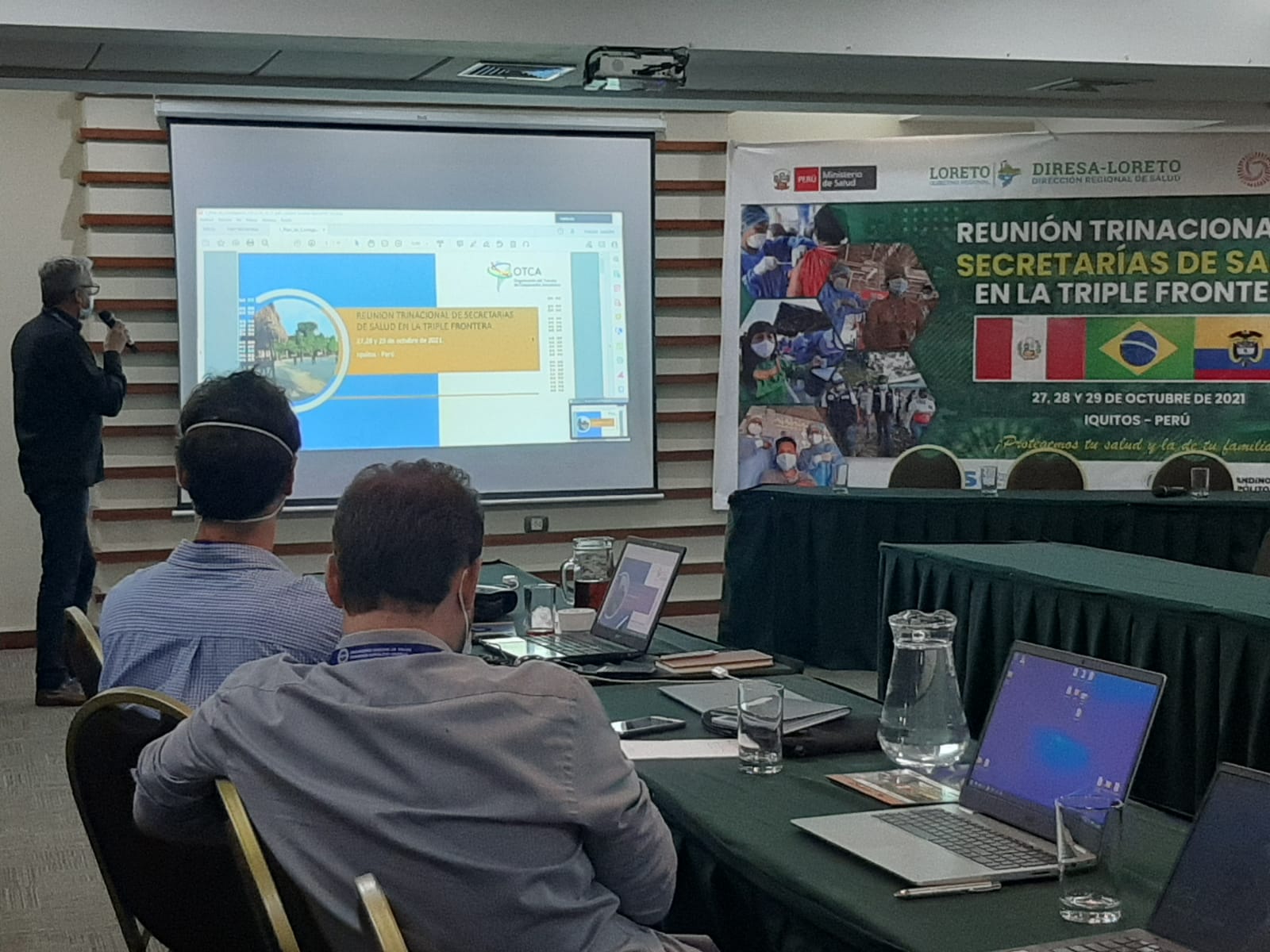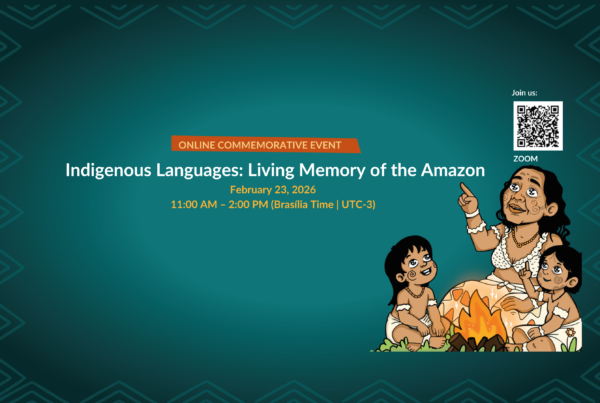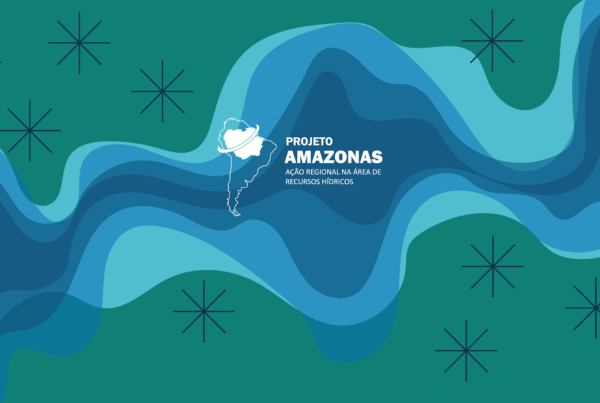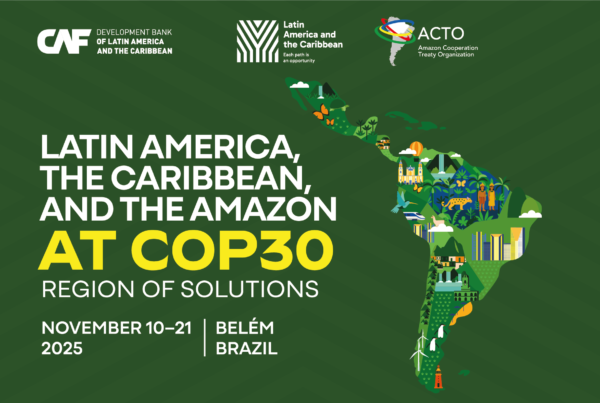This meeting was held from November 27 to 29, in Iquitos, Peru with the aim of strengthening health work within the framework of Amazon integration and cooperation.
The event brought together representatives of the ministries of Health of Colombia, Peru, and Brazil; the Office of Cooperation and International Relations of the Ministry of Health (ORIS) of Brazil, Colombia, and Peru, the Andean Health Organization-Hipólito Unanue Agreement (ORAS CONHU); the Pan American Health Organization (PAHO); the National University of the Peruvian Amazon (UNAP); the National University of Colombia (UNAL) Amazon headquarters and the Institute Leonidas & Maria Deane, of the Oswaldo Cruz Foundation (ILMD/FIOCRUZ) and ACTO.
The Amazon Cooperation Treaty Organization (ACTO) presented the progress of the project Contingency Plan for Health Protection in Highly Vulnerable Indigenous Peoples and in Initial Contact implemented jointly with the Pan American Health Organization (PAHO) and with financial support from the Inter-American Development Bank (IDB).
This project aims to consolidate a regional cooperation action of the Member Countries of ACTO in border areas of the Amazon Basin that allows strengthening local health services, supporting the reduction of the impacts of COVID-19 and the threats of emerging and endemic tropical diseases in border regions with the presence of highly vulnerable indigenous peoples, with special emphasis on indigenous peoples in situations of isolation and in initial contact.
ACTO was represented by project coordinator Carlos Macedo and technical consultants Conrado Otavio, Lucas Albertoni and Lyli Chindoy. The team presented information compiled so far on the territorial, sociocultural and demographic context of the region, focusing on indigenous peoples, health systems and reference networks for indigenous health care in the Yavari basin. They also presented suggestions and recommendations for the elaboration of contingency plans, based on previous experiences of elaboration and implementation of contingency plans in contact situations in the Yavari Valley.
On the first day of this technical meeting, delegates and representatives presented the health situation in their territories and the situation of indigenous peoples, epidemiological information, including COVID-19 and the state of vaccination of their populations. Also highlighted was the opening of the Binational Health Situation Analysis Room (Brazil-Colombia) in Tabatinga, which will strengthen epidemiological surveillance of COVID-19 and other prevalent diseases in the triple border. On this topic, the proposal was presented that the Health Situation Analysis Room in Tabatinga be trinational (Brazil-Colombia-Peru), and to make arrangements with the respective Offices of Cooperation and International Relations of the Ministries of Health (ORIS) of the 3 countries with this objective.
On the second day, the ORIS table featured the presentation of the legal and international framework of bilateral agreements of the 3 countries. In addition, they pointed out that the formalization of any trinational agreement must be reviewed and approved by the Ministries of Health and respective Foreign Ministries. However, existing bilateral agreements between the 3 countries welcome the work being done by regional health authorities at the border. In this connection, the Ministry of Foreign Affairs decided to extend and provide free access to emergency and emergency medical care services to the population, with priority given to the indigenous peoples of the tri-border area, regardless of their country of origin.
At the round table of intergovernmental cooperation and integration agencies, ACTO, ORAS-CONHU and PAHO presented their activities in the triple border and agreed to promote the work agenda of regional health authorities, especially those aimed at Amazonian indigenous peoples with priority in vaccination against COVID-19.
In the table of universities and research institutes, the participants of the Universidad Nacional de Colombia (Leticia/Amazon headquarters), the National University of the Peruvian Amazon (UNAP) and the Oswaldo Cruz Foundation (Fiocruz), highlighted its institutional presence in the tri-border area and their actions, training, and research with an intercultural approach in the territory. They proposed that regional health authorities make joint efforts between universities and Fiocruz in their training, research and social promotion work related to intercultural health, vector control and cross-border participatory epidemiological surveillance. It was also proposed to organize a meeting of higher education institutions with the aim of defining lines of inter-institutional cooperation in the triple border, in the city of Iquitos, with a date to be defined.



